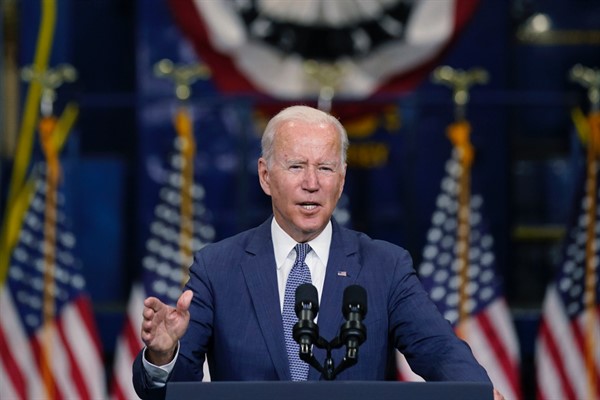Next week, U.S. President Joe Biden will convene his Global Summit for Democracy, a virtual gathering of global leaders that aims to promote human rights, counter corruption and discuss ways to strengthen democracy against a rising tide of authoritarianism across the world. The event fulfils a campaign promise made by then-candidate Biden to organize a summit of democracies during his first year in office.
The gathering has been dismissed in some quarters as a hollow performative exercise, rendered meaningless by the inevitable controversy over the guest list. But arguments about the substance of the summit, as well as which countries were invited and which were snubbed, sidestep a crucial point: The importance of the exercise lies precisely in its symbolism. If Washington is able to persuade more than 100 countries to make a public declaration of their commitment to democracy in a choreographed event, it won’t magically change the world into a utopia. But it could potentially put pressure on the countries that attend the gathering to uphold the democratic pledges they made there. More importantly, the summit could give momentum to those Americans preoccupied with the worsening crisis of democracy in the United States.
There is a broad consensus that democracy is currently at a low-water mark compared to its post-Cold War expansion, and arguably nowhere has it sunk lower than in the Middle East. Several countries—including Egypt, Libya, Sudan, Yemen and Tunisia—that experimented with democracy and enjoyed brief moments of hope for change after the uprisings that began in 2010 have since regressed into authoritarianism, war or both.

